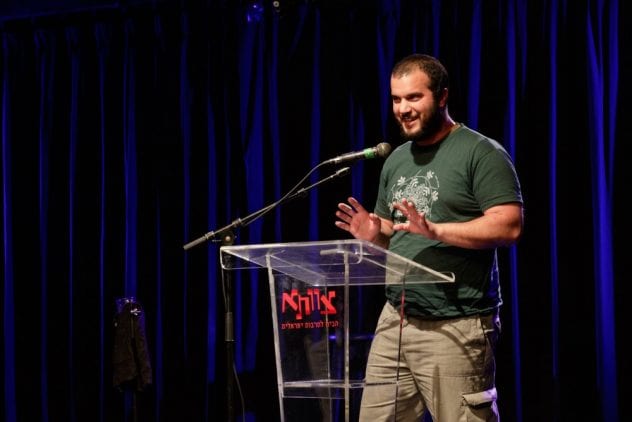After graduating from the Arava Institute and returning to the real world, one of the most pressing questions that keeps rolling around your mind is “How can I implement what I learned at the Institute in the real world, my local community and my personal life?” I keep struggling with this question every day I wake up and go on with my daily routine. Thankfully, in the last few years I finally found that balance between the Arava Institute legacy and my personal life. I have dedicated my professional life to promoting sustainability, ecology, environmentalism, and permaculture in the Naqab/Negev region.
I have worked at a farm school that is the first of its kind worldwide to implement the five domains envisioned by the global Sustainability Lab: the Material Domain, the Economic Domain, the Social Domain, the Domain of Life, and the Spiritual Domain.
I also worked with the Bedouin community in the Naqab/Negev, providing students, teachers, and local activists with skills and tools to implement those elements of sustainability, by learning at our farm the principles of permaculture, organic food crops, and upcycling materials, and by bringing our expertise inside the concrete walls of schools to help them to plan and implement projects that cater to the special needs of each school.
This year I was active in a number of amazing projects, always striving to keep the spirit of the Arava Institute alive in each one of them. Through a project called Oasis of Co-Existence – Reconnecting Roots we help Bedouin students to document the fading oral history of their ancestors, by documenting it through the lens of traditional medicinal desert herbs. The second part of that project is to collaborate with Jewish students from the central Arava region to explore the traditions of those plants from Bedouin and Jewish perspectives, and to learn how to use those herbs to the benefit of humanity.
The second major project that I am involved in is called Transboundary Education in the Makers Center at the central Arava, a science center for children and youth. Teachers and students from the Dead Sea Basin in Jordan and Israel plan and implement together a transboundary scientific curriculum, that help cater to the needs of the local communities in both countries.
Another project is called Climate Change Leadership Curriculum and is a collaboration between the Arava Institute, my school, and the Harvard Graduate School of Education. It is a first of its kind attempt to implement this curriculum in highschools. I am currently running the project with a youth group from Altaqwa Secondary school in Rahat, where students are doing a root cause analysis of a climate change phenomenon of their interest.
Last but not least, our school is participating in the Israel Sustainability Development Goals (ISDG) program, through we help promote one of the goals of the United Nation’s SDGs. With the project entitled Wateringa we aim to develop an apparatus that could help off-grid desert and refugee communities in Jordan to purify and treat polluted water using Moringa seeds powder, by connecting students from both countries to teach local people the Moringa seeds methods of purification.
Today I also work with Dr. Clive Lipchin, Director of the Institute’s Center for Transboundary Water Management, as the coordinator of the MERC-Cov19 project. This project focuses on detecting the SARS-Cov-2 virus genetic primers in the sewer discharge effluents in the Hebron river basin. The project mainly focuses on the Bedouin villages’ effluents discharge through the Hebron stream. Its global novelty stems from the detection of SARS-COV2 genetic primers in the natural stream. Many players and stakeholders are involved using cutting edge technology, social engagement, and epidemiological and policy advocacy. We want to promote more efficient, timely, and non-invasive screening methods.
I am thankful for the skills I learned and developed at the Arava Institute, and so excited to be able to continue working in the same field, and maintain a relationship with the Institute’s research centers.
Fareed Mahameed, 2015/16 alumnus


